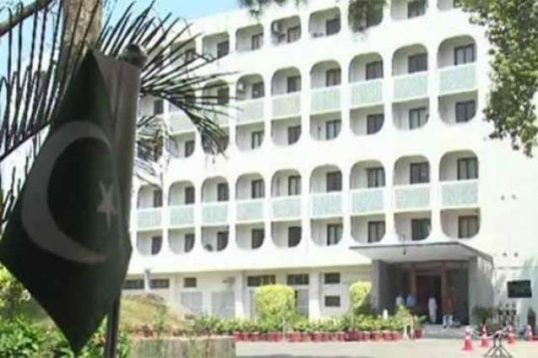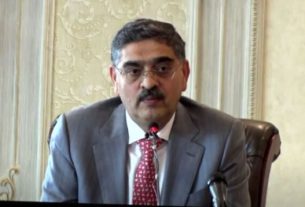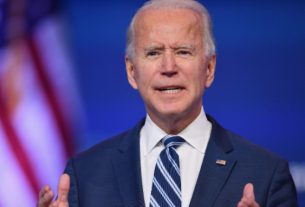The Foreign Office (FO) said on Thursday it had received the decision of the Permanent Court of Arbitration — a non-UN intergovernmental organisation located in The Hague — which declared the body competent to adjudicate on a dispute between Pakistan and India over the construction of two hydroelectric projects in occupied Kashmir, pursuant to the decades-old Indus Waters Treaty.
The dispute pertains to concerns raised by Pakistan over India’s construction of the 330-megawatt Kishanganga project on the Jhelum River and plans to construct 850-MW Ratle project on the Chenab River in occupied Kashmir.
“The Government of Pakistan is in receipt of the Award of the Court of Arbitration, addressing its competence and the way forward on the disputes between Pakistan and India concerning the Kishenganga and Ratle Hydroelectric Projects, and wider questions of the interpretation and application of the Indus Waters Treaty,” the FO said in a statement today.
The court had upheld its competence and determined that it would now move forward to address the issues in dispute, the statement added.
It also mentioned that the Indus Waters Treaty “is a foundational agreement between Pakistan and India on water sharing” and that “Pakistan remains fully committed to the treaty’s implementation, including its dispute settlement mechanism”.
“We hope that India would also implement the treaty in good faith,” the FO said.
Pakistan initiated the legal proceedings on Aug 19, 2016, by requesting the establishment of an ad hoc arbitration court pursuant to Article IX of the Indus Waters Treaty.
In its decision today, the arbitration court stated that the World Bank confirmed receiving the request on August 31, 2016.
It noted that Pakistan sought the arbitration court’s intervention to resolve issues concerning the interpretation or application of various parts of the treaty governing the design or operation of run-of-river hydroelectric plants on the Indus, Jhelum, and Chenab Rivers and their tributaries.
The country took this step after strenuously raising its concerns in the Permanent Indus Commission starting in 2006 for the Kishanganga project and in 2012 for the Ratle project and then seeking resolution in government-level talks held in New Delhi in July 2015. Pakistan’s decision to initiate proceedings is in response to India’s persistent refusal to address Islamabad’s concerns.
The treaty provides for two forums for settling the disputes — the court of arbitration, which addresses legal, technical and systemic issues; and the neutral expert, which addresses only technical issues.
Pakistan requested the establishment of the court of arbitration because of systemic questions requiring legal interpretation.
India responded to Pakistan’s initiation of the formal dispute settlement process by its own belated request for appointing a neutral expert.
Fearing conflicting outcomes from two parallel processes, on Dec 12, 2016, the World Bank suspended the processes for the establishment of the court of arbitration and appointment of the neutral expert and invited both countries to negotiate and agree on one forum.
Pakistan and India could not agree on a mutually acceptable forum.
After six years, the World Bank finally lifted the suspension, created the arbitration court and appointed a neutral expert, but by this time, India had built the Kishanganga project.
The court of arbitration observed in its ruling today that it was empanelled on October 2022, but to date, “India has elected not to communicate directly with or to appear before the court, nor to appoint two arbitrators to the court as it is permitted to do under the [Indus Waters] Treaty”.
The court began hearing the dispute over Kishanganga and Ratle hydroelectric projects in January this year amid reports that India was attempting to unilaterally modify the Indus Waters Treaty.
Meanwhile, Reuters reported that India had asked Pakistan to change the Indus Waters Treaty by barring third parties from intervening in disputes.
Separately, the hearing on the arbitration court’s competence took place at the Peace Palace in The Hague from May 11-13, 2023, today’s ruling said, adding that India did not appear nor participated in the hearing.
India had raised six objections over the court’s competence and communicated them to the World Bank, the judgement stated, adding that Pakistan had rejected all of these objections.
The court addressed all six of India’s objections in its ruling, declaring that “the Court of Arbitration is competent to consider and determine the disputes set forth in Pakistan’s request for arbitration”.
Pakistan is concerned that India’s planned hydropower dams will cut flows on the river, which feeds 80 per cent of its irrigated agriculture. Over the years, it has asked for a neutral expert and then an arbitration court to intervene.
On the other hand, India has accused Pakistan of dragging out the complaints process and says the construction of its Kishanganga and Ratle projects is allowed by the six-decade-old Indus Waters Treaty.__Dawn.com





